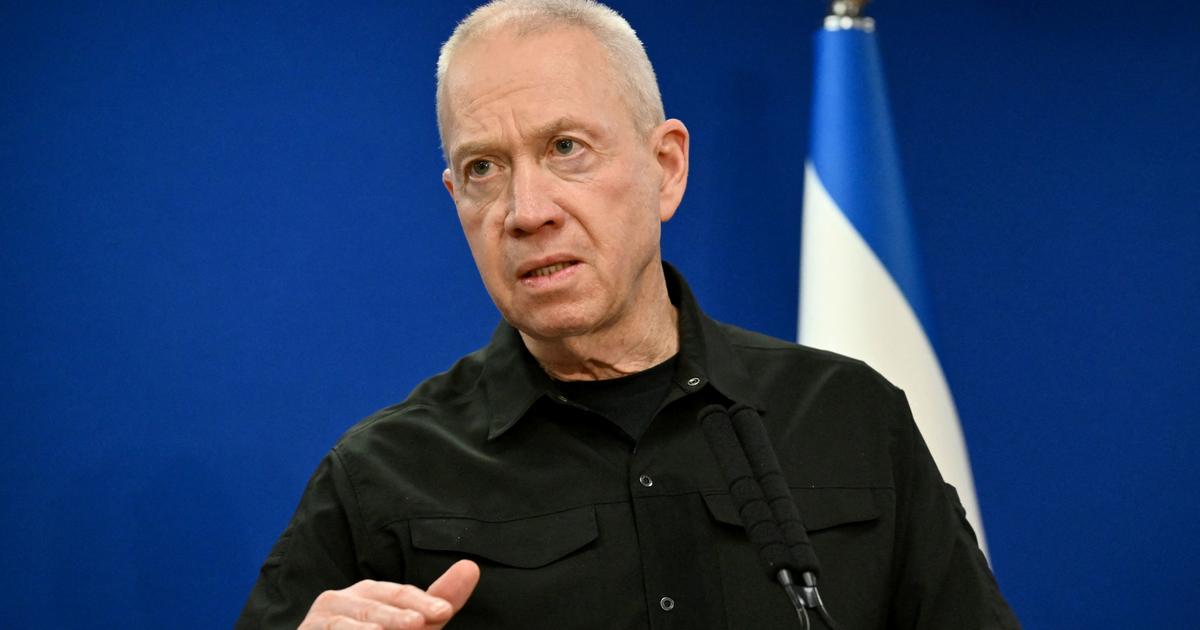Enlarge image
Naftali Bennett: Should rule Israel by 2023
Photo: Ariel Schalit / AP
Naftali Bennett is the new Prime Minister of Israel.
On Sunday evening, he and his eight-party alliance first faced a vote of confidence, which the new coalition won with the expected close result of 60 to 59 votes.
The new head of government was sworn in immediately afterwards.
The 49-year-old Bennett replaces long-time Prime Minister Benjamin Netanyahu, who had not been able to form a stable government since the end of 2018.
The parliamentary session before the vote was tumultuous at times: Bennett's opening speech was so disturbed by repeated loud heckling from members of the Netanyahu camp that he could barely finish a sentence. Bennett said the shouting showed the deep division in Israel that arose during Netanyahu's tenure. He warned of a "vortex of hatred and fraternal quarrels." But he wanted to form a government that represented "all of Israel". Numerous protesting MPs were taken out of the room by stewards.
In his speech, Bennett then set clear signals for the course of the future government, which can also be understood as offers to the Netanyahu camp. He affirmed that Israel would resolutely oppose a re-launch of the nuclear deal with Iran: "Israel will not allow Iran to arm itself with nuclear weapons!" will pull. These are positions that the Netanyahu government also took.
In his last speech as Prime Minister he made it clear that he would not make it easy for a new government in which he would not be involved: “If it is our fate to go into the opposition, then we will do it with upright shoulders until we can overthrow this dangerous government and rule this country our way again. "
Historical change of power
No one has steered Israel's fate longer than "Bibi": Benjamin Netanyahu was Prime Minister for twelve years without a break.
Before that, the right-wing conservative politician had already headed the government in the second half of the 1990s.
But now it looks like his era is actually coming to an end.
The 71-year-old's opponents have succeeded in forging a mixed-purpose alliance of no fewer than eight parties to replace him.
Even before the expected replacement of the right-wing conservative Israeli prime minister, demonstrators had celebrated in front of his official residence in Jerusalem.
Critics of the outgoing head of government cheered and danced.
On Saturday evening one of the signs read: "Bibi, this is your last Saturday in Balfour, start packing."
Naftali Bennett of the far-right Jamina Party criticized the rallies a few hours before the vote in the Knesset: "This is not the time for demonstrations and provocations." Bennett called for Netanyahu and his family to be treated with respect.
Premier on time
Naftali Bennett of the far-right Jamina party, who was formerly defense minister under Netanyahu, is now the new prime minister until 2023.
According to media reports, his government should include 27 ministers.
The planned alliance brings together eight parties from the right to the left, including an Arab party.
Ex-Finance Minister Lapid had actually received the contract to form a government from the Future Party after Netanyahu, as chairman of the largest parliamentary group, failed to do so.
But Lapid let the 49-year-old ex-Defense Secretary Bennett of the far-right Jamina party take precedence in the office of prime minister in order to make the coalition possible.
Lapid is to replace Bennett as head of government in two years.
If the new government survives, it could end the perennial political crisis Israel has been in for two and a half years.
Netanyahu's Likud is still the strongest group with 30 seats.
So why did the "wizard," as Netanyahu is called by many, have to give up power now?
According to political scientist Jonathan Rynhold, the reasons were not ideological but personal. "Since Netanyahu has been charged with corruption, more and more people have come to believe that he puts his own interests above the interests of the country." A prison sentence To escape and stay in power, Netanyahu has increasingly acted in ways that even earlier supporters viewed as harmful.
The new coalition: it could hardly be wider
Because of the broad ideological spectrum, the coalition could "not move anything decisive in controversial issues," said Rynhold in the run-up to the vote. Instead, they will try to "agree on an agenda that the public finds attractive". The most important task is to adopt a budget for the first time in two years. "Israel needs more hospitals, school classes have to be smaller and the cost of living has to be reduced."
Problems threatened, on the other hand, from the activities of right-wing groups, for example in the construction of illegal settlement outposts. The left-liberal parties, the political center and the Arab Raam are in favor of the establishment of an independent Palestinian state. Bennett, on the other hand, is considered the figurehead of the settlers. "The government could come under pressure if right-wing organizations cause unrest," said the political scientist.
In the event of a new confrontation with the ruling Hamas in the Gaza Strip, Rynhold sees less potential for the new alliance to explode.
The Jewish parties are basically in agreement on how to proceed against the militant Islamists.
And the leader of the conservative Islamic Raam party, Mansur Abbas, has already shown "that he was incredibly courageous and resilient when he joined the coalition - despite what just happened in Gaza."
Abbas' decision is seen as a step towards more integration of the Arab minority, who make up 20 percent of the nine million Israelis.
The strictly religious Jewish parties, so far part of almost every government, remain in opposition.
Political scientist Rynhold sees overall more chances for the coalition's survival than for its failure.
But he does not want to write off Netanyahu entirely yet.
"He is Israel's most skilled politician," said the political scientist.
The fact that the previous Prime Minister will make a comeback after being voted out of office cannot be ruled out.
Benjamin Netanyahu apparently also assumes this.
His last request to speak in the Knesset before the vote: "We'll be back soon!"
pat









